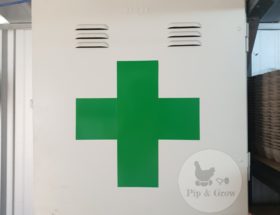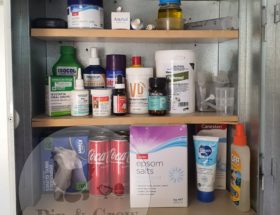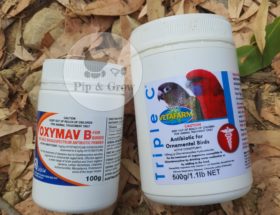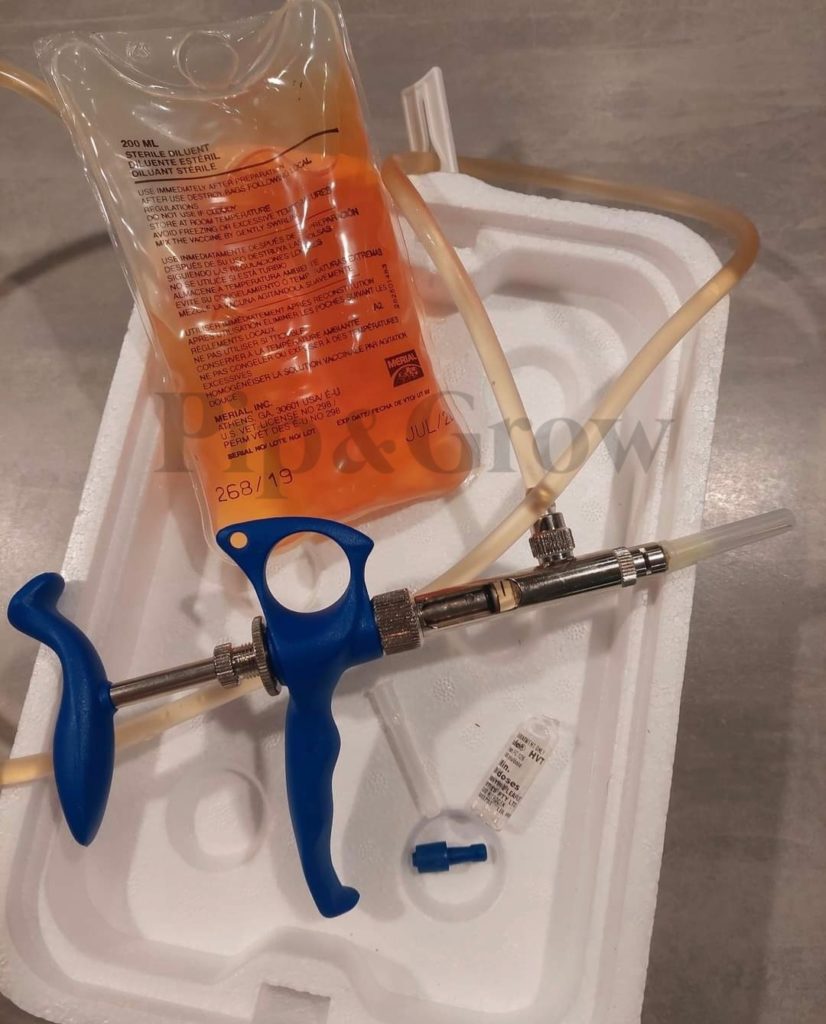
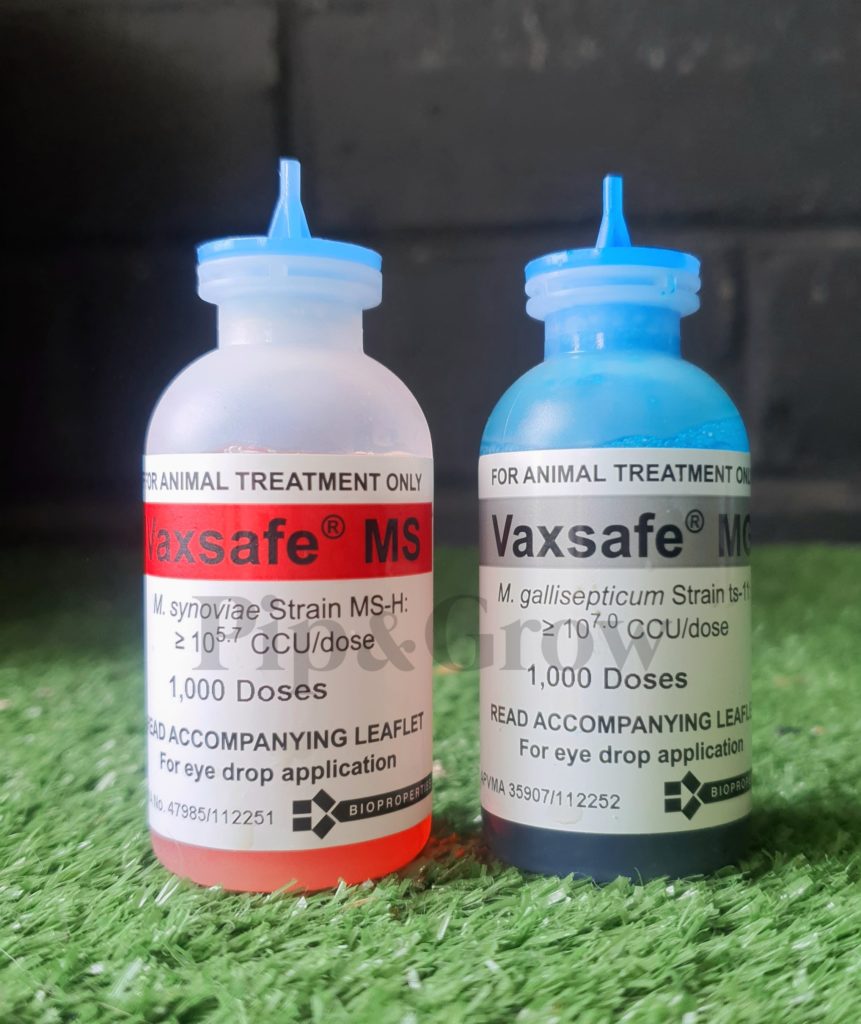
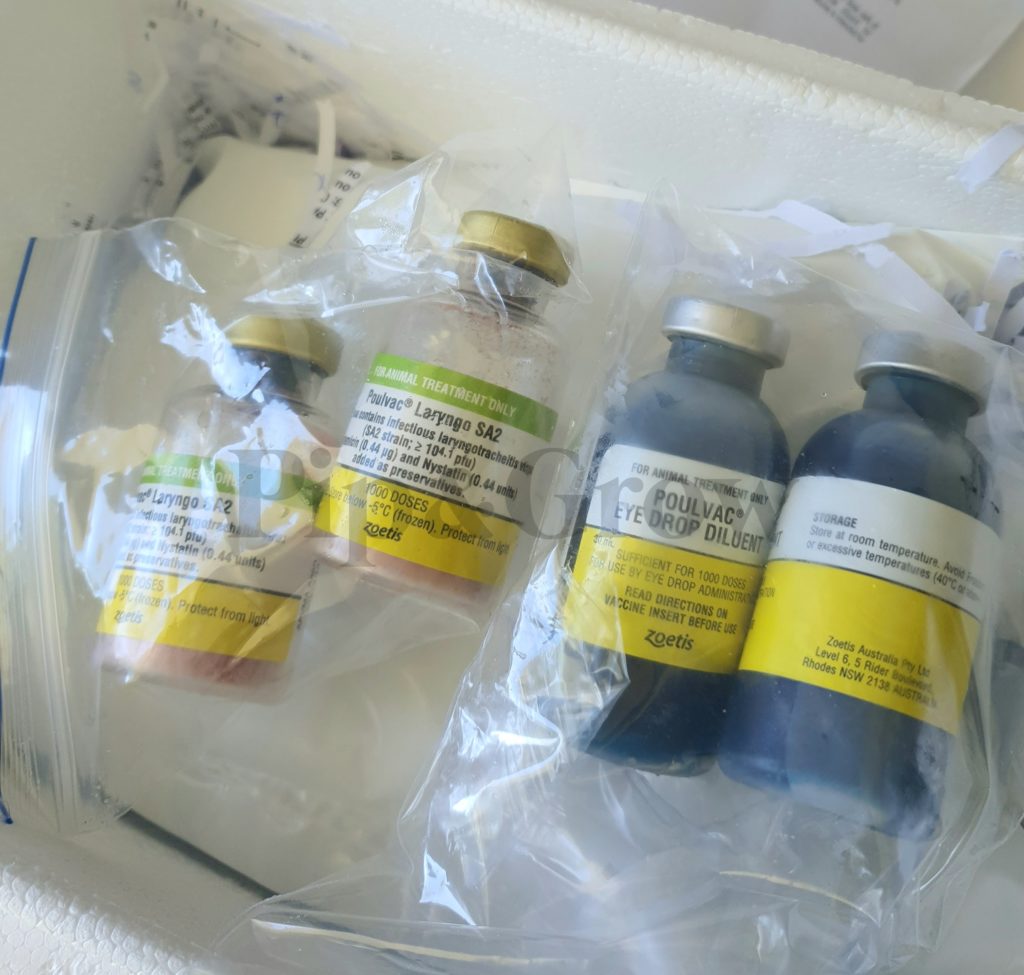
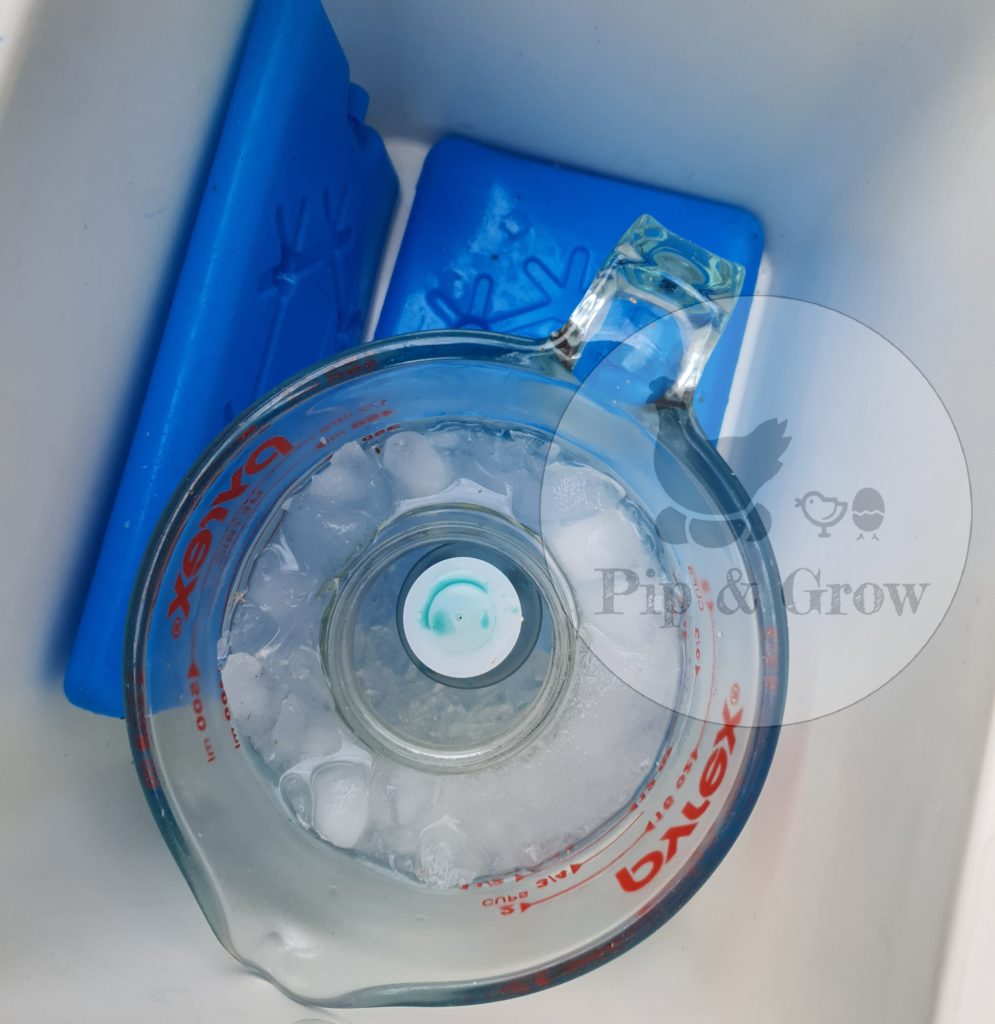
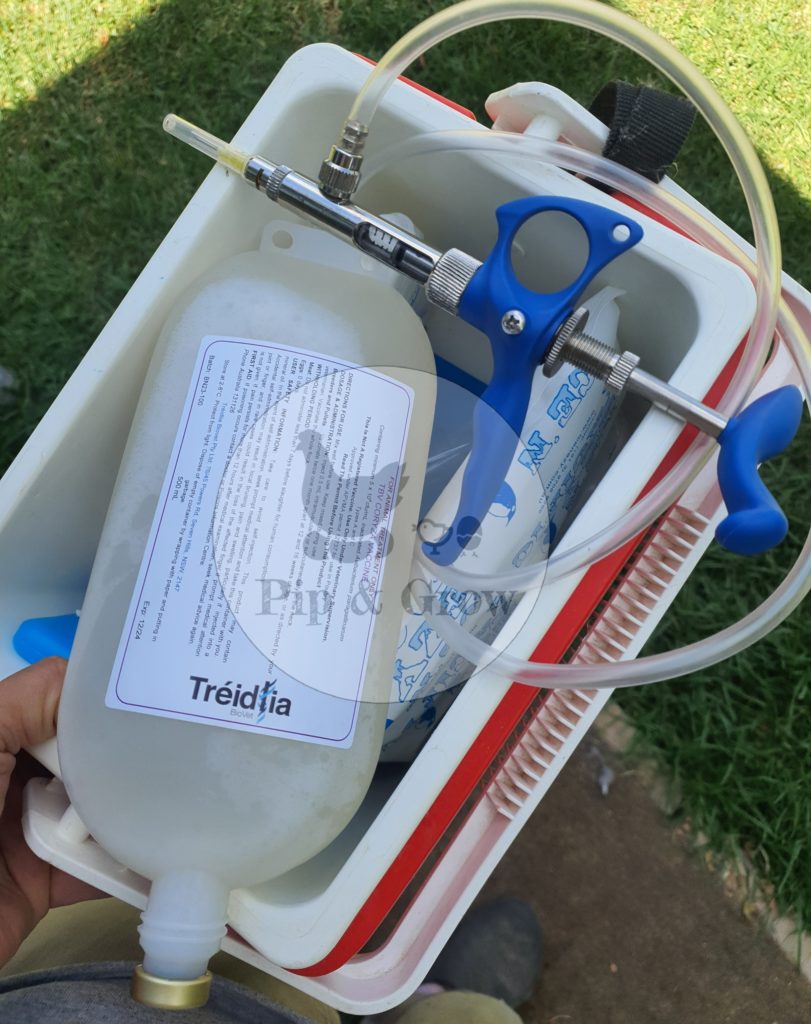
We maintain an extensive vaccination program for our breeding birds and any birds offered for sale. All vaccinations are administered on-site by us, adhering to strict biosecurity protocols. We do not share vaccines or participate in group vaccinations, as this could compromise the effectiveness of the vaccine and potentially expose our birds to additional diseases.
Below are some frequently asked questions regarding vaccinated birds:
A. While chickens do have immune systems, vaccines help bolster their immunity and protect against specific diseases that can be devastating to flocks.
A. Vaccines are rigorously tested for safety and efficacy before approval for use in poultry. They help prevent disease outbreaks and reduce the need for antibiotics, ultimately improving flock health and welfare.
Vaccines are developed from weakened or inactivated pathogens that cannot cause disease. Their purpose is to stimulate the chicken’s immune system to recognize and fight off actual pathogens, protecting them from illness. In some cases, vaccinated birds may shed the weakened vaccine virus through droppings or respiratory secretions for a short period. This shedding is typically harmless to other chickens and may even provide a mild “natural vaccination” effect to unvaccinated birds.
For certain vaccines, such as those for Marek’s disease or ILT (Infectious Laryngotracheitis), there is an extremely low risk that the vaccine virus might mutate and regain some level of virulence. However, this is rare with well-tested commercial vaccines, and mutation typically requires exposure to a wild strain of diseses /virus.
A compelling piece of evidence supporting the safety and efficacy of poultry vaccines is their widespread use among backyard chicken keepers worldwide. Many of these keepers raise a mix of vaccinated commercial breeds, commonly immunized at hatcheries or growing farms alongside unvaccinated heritage breeds. This coexistence rarely results in issues, directly debunking myths spread by misinformation.
The evolution of poultry vaccines since their introduction in the mid-20th century has been instrumental in addressing concerns and misconceptions. Modern vaccines are far more stable, effective, and safer compared to their earlier counterparts, further reinforcing their role as an essential tool in protecting flock health.
A. While vaccines significantly reduce the risk of disease, they may not provide complete immunity in all cases. Proper vaccination protocols, including timing and storage and quarantine after vaccination are essential for maximizing effectiveness.
Vaccinated chickens can still become infected if exposed to a disease. They can carry and spread certain pathogens, as they often do not show symptoms or become unwell due to the protection provided by the vaccine. It’s similar to COVID-19 in humans: a vaccinated person can still contract the virus, remain asymptomatic or experience mild symptoms, but test positive and infect others.
A. The cost difference between vaccinated and unvaccinated birds is typically minimal compared to the potential losses and emotional distress that can result from disease outbreaks. While there may be some upfront costs associated with purchasing , the investment is well worth it in terms of protecting the health and welfare of the flock.
A. Most vaccines are most effective before they come into contact with any viruses or diseases. It’s important to keep them protected from exposure for about 2-3 weeks after vaccination until their immune systems are fully developed. This allows the vaccine to take effect and provide the best possible protection for your chicks.
Even if a broody hen is vaccinated and appears healthy, she could still be a silent carrier of disease, having been exposed without showing symptoms. Chicks hatched under her may have been in contact with the virus from the moment they hatched. Similarly, unvaccinated chicks may have been exposed to diseases during or after hatching. While it’s possible to vaccinate chicks hatched under a broody hen or purchased unvaccinated chicks, no one can guarantee the effectiveness of the vaccination.
A. Vaccines must be administered according to specific protocols, including proper timing and dosage, to ensure effectiveness. Deviating from recommended guidelines may compromise vaccine efficacy.
A. In Australia, many poultry vaccines are sold in large quantities, often in units of 1000 doses, and are temperature-sensitive. Once the seal is opened, most vaccines have a limited window of only a few hours for use, and any remaining vaccine cannot be reused. Average vaccine costs range from $250 to $500, including temperature-sensitive overnight shipping. The high cost of vaccines makes it challenging for veterinarians to offer vaccination services for small flocks of chickens.
A. We are a unique small-scale poultry farm committed to ensuring the utmost protection for our breeding birds and chicks through an extensive vaccination program. We dedicate significant resources, both financially and in terms of time, to provide maximum protection for our birds. As a breeder, we administer vaccinations on-site, taking personal responsibility for the health of our flock.
However, we are unable to offer poultry vaccination services to others. This decision is based on legal considerations, as we are not qualified veterinarians and providing vaccination services may be regulated by law. We prioritize compliance with legal requirements and focus on providing the best care for our own birds.
